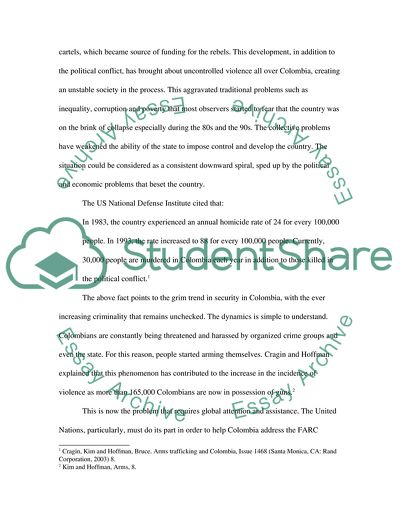Cite this document
(Colombia - the Old and Modern Issues Case Study Example | Topics and Well Written Essays - 1750 words, n.d.)
Colombia - the Old and Modern Issues Case Study Example | Topics and Well Written Essays - 1750 words. https://studentshare.org/social-science/1759462-when-and-why-the-un-should-get-involved
Colombia - the Old and Modern Issues Case Study Example | Topics and Well Written Essays - 1750 words. https://studentshare.org/social-science/1759462-when-and-why-the-un-should-get-involved
(Colombia - the Old and Modern Issues Case Study Example | Topics and Well Written Essays - 1750 Words)
Colombia - the Old and Modern Issues Case Study Example | Topics and Well Written Essays - 1750 Words. https://studentshare.org/social-science/1759462-when-and-why-the-un-should-get-involved.
Colombia - the Old and Modern Issues Case Study Example | Topics and Well Written Essays - 1750 Words. https://studentshare.org/social-science/1759462-when-and-why-the-un-should-get-involved.
“Colombia - the Old and Modern Issues Case Study Example | Topics and Well Written Essays - 1750 Words”. https://studentshare.org/social-science/1759462-when-and-why-the-un-should-get-involved.


